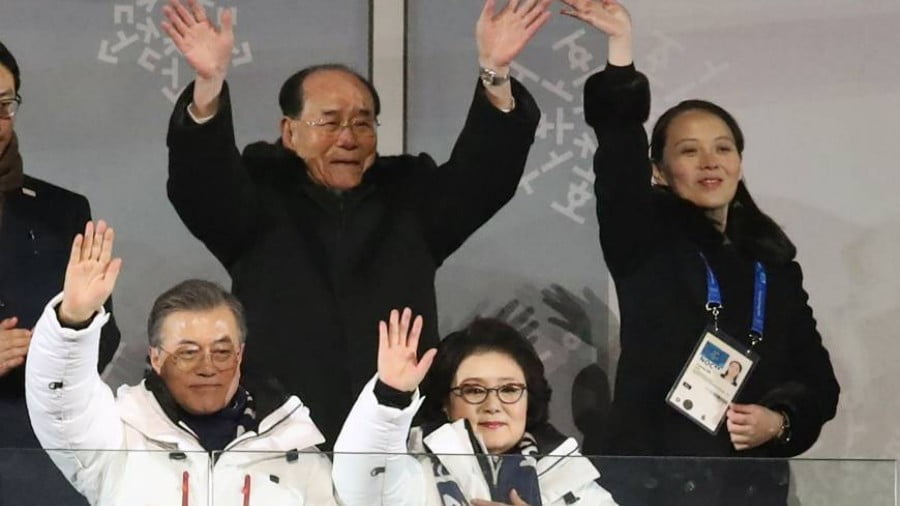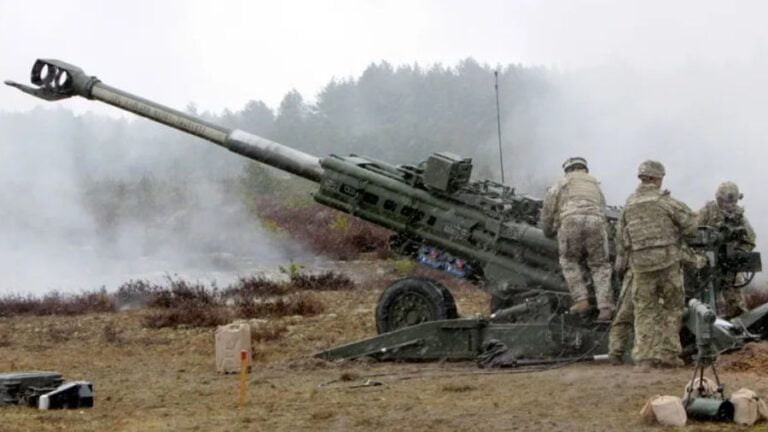Could South Korea Join Pakistan and Turkey as an Ex-US “Ally”?
The often malicious “diplomacy” of the Trump Administration’s State Department has made it clear just how little the US valued its former “allies” in Pakistan and Turkey. Pakistan has gone from an obedient servant of the failed US policy in Afghanistan to a country that is being openly chastised and financially punished by the US, for the fact that Islamabad refuses to leave US insults unanswered, while also refusing to jeopardise its own security in order to give the US free reign on Pakistani soil as part of Washington’s failed Afghan adventure that Pakistan wants to drawn down and which the US wants to continue indefinitely.
For Turkey, the declining relationship started in earnest with a failure by Washington to condemn the attempted coup of 2016, that Turkey continues to blame on a US deep state that collaborated with the Fethullah Terrorist Organisation (FETO). Even before this, America’s willingness to grant asylum to Fethullah Gulen himself in spite of Turkey’s protests, was a sign that not all was well between what the US still deceptively calls an “enduring NATO alliance”. Today, with the US unrepentant and unwilling to cease arming and funding Kurdish PKK linked militants in Syria, a Rubicon has been crossed between Ankara and Washington in spite of both sides occasionally trying to mute disagreements.
South Korea is a far more compact country than Turkey or Pakistan and none of the centuries old sectarian issues in and around Turkey or Pakistan exist on the Korean peninsula. Instead, a common peoples who have historically been united, have been artificially divided in much the say way that Germany was divided throughout the Cold War era.
Because of this, there is a temptation to present the two Korean states as ideological monoliths whereby South Korea will always stand by America and the “American way” while the DPRK will always stand by left-wing governments or in the case of Russia, an old Soviet ally with whom trust remains high. However, in a world where left and right are becoming as obsolete in geopolitical discussions as they are in the domestic politics of multi-party states, this Korean dichotomy no longer fully applies. In reality, Russia has good relations with both Korean states while Communist China has far better relations with capitalist South Korea.
The proximate cause of many South Koreans’ discontent with the US stems from the 2017 impeachment of Park Geun-hye. Park Geun-hye is herself the daughter of South Korea’s far-right dictator Park Chung-hee who was a vital US asset in Asia during the Cold War, even more so than President Marcos in The Philippines and far more than Suharto in Indonesia.
The younger Park was impeached after mass protests were staged throughout Seoul demanding her removal. While the proximate cause of the protests were Park’s domestic corruption in a society that is culturally averse to the kinds of corruption that are seen as de rigueur in other nations, Park’s authoritarian domestic tendencies were also linked to her incredibly militant, staunchly pro-US policy. Park was so deeply anti-DPRK that her sentiments were even to the right of well-known Communist baiting US war hawks like John McCain.
A special election in May of 2017 brought Moon Jae-in to power, a man whose temperament, official policy statements and experience indicated that he was a man of peace and moderation. Since taking power, Moon has not only been able to resist the temptation to parrot the anti-DPRK statements coming out the radically anti-Pyongyang Trump administration, but Moon has embraced his Northern counterpart Kim Jong-un’s offer to restore communications and participate jointly in the Winter Olympics. Kim Jong-un’s sister has furthermore invited Moon to Pyongyang and all indications point to Moon being eager to visit and pursue a further deepening of relations.
But beyond Moon’s moves for peace is Moon’s related economic realism which has seen relations between Seoul and Beijing reach all time highs. Because of this, South Korea and China now enjoy the early stages of a free trade agreement which technically came into force in mid 2015. While China and South Korea look to intensify their trade relations, the Obama era free trade agreement signed with Seoul has become deeply unpopular in the Trump White House, so much so that Trump is threatening to “renegotiate” the deal which in effect means modifying the agreement to the point where it is no longer recognisable.
South Korea has made its own view clear, as today, Seoul made preparations to lodge a formal complaint to the World Trade Organisation (WTO) regarding America’s so-called anti-dumping laws which impose import tariffs on South Korean steel and transformers. South Korea has learned a vital lesson that Pakistan and Turkey have recently learned: the US will not reward countries that cooperate with it militarily, with productive economic cooperation. Instead, the US if anything uses and abuses such “allies” by taking advantage of their good will on so-called security issues, before forcing such “allies” into one-sided economic arrangements. Philippine President Rodrigo Duterte has not only learned this lesson but has drastically pivoted the geostrategic outlook of his country to form new partnerships with China, Russia and fellow ASEAN members including Malaysia and Vietnam.
To make things more insulting, whilst Pakistan and Turkey have both suffered due to their locations in ‘dangerous neighbourhoods’, South Korea is located in the safest and most stable geopolitical region on earth. Anyone who believes the DPRK poses the kind of 24/7 threat to South Korea or Japan that terrorist groups like Daesh, al-Qaeda, Baloch nationalists and local extremists do in respect of Pakistan, or the PKK, Daesh and the FETO pose to Turkey, is not only insulting Pakistan and Turkey, but is insulting the intelligence of anyone listening to such preposterous arguments. While the DPRK has nuclear weapons and the aforementioned terrorist groups do not, so too do China and Russia have nuclear weapons, but no serious individual actually believes that China and Russia pose a threat to the daily lives of citizens throughout their region, let alone the world.
Because of this, the incentive for the two Korean states to make peace is high, as it carries innumerable advantages and virtually no major drawbacks. That is unless the US steps in to try and retard this progress, as was evidenced by the fact that US Vice President Mike Pence refused to even acknowledge the DPRK delegation at the Olympics, let alone make cordial contact with them.
As South Korea begins to re-evaulate its economic prospects and realises that its friends are increasingly in Asia/Eurasia rather than in the United States and while Seoul simultaneously re-evaluates its security strategy in the wake of slow but consistently improving ties with the DPRK, many South Koreans might grow increasingly resentful at the fact that for decades, the US has used South Korean soil for the same thing it has used Pakistani and Turkish soil for in the past, all without providing any tangible economic benefits to the Korean people and all under the guise is protecting South Korea from what even cynics are now admitting is a non-threat.
With the US seeking a frozen conflict in Korea which temporarily lifts its proverbial head, thus accelerating US weapons sales to the region and with the US also wanting to maintain a permanent presence in South Korea in order to more easily antagonise China on her doorstep, it seems that the US and Seoul may already be diametrically (however quietly) at odds over a regional peace process. This has only been further augmented by the fact that Washington and Seoul no longer see eye to eye on free trade, with China and Russia being more amiable to South Korean commercial ambitions than an increasingly protectionist USA. Put another way, the closer South Korea pivots towards a Chinese win-win model of peace through prosperity which could take both Korean states closer to One Belt–One Road, the more the US will work to undermine these developments, just as it has done in South Asia and the Middle East, in respect of countries who choose to pursue partnerships based more on the attraction of One Belt–One Road than on one to Wall Street.
By no means will South Korea become a US enemy anytime soon, but just as it did in Pakistan and Turkey, anti-US sentiments both on the street, in the board rooms and in the halls of government, will only increase in South Korea as the months and years progress. It may eventually reach a breaking point, especially if the US responds in a hostile way to Seoul’s grievances over broken US promises on free trade.
From this perspective, the once unthinkable begins to look like the inevitable.
By Adam Garrie
Source: Eurasia Future






